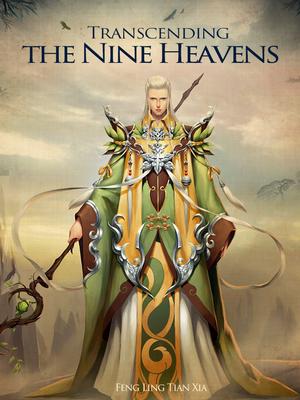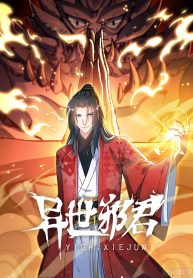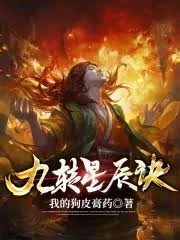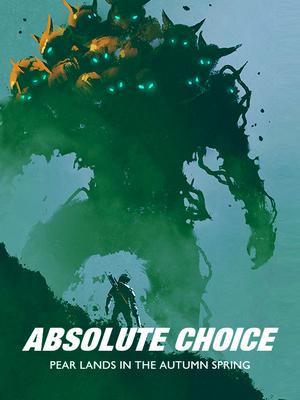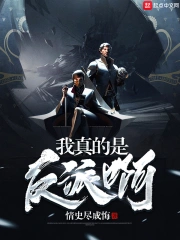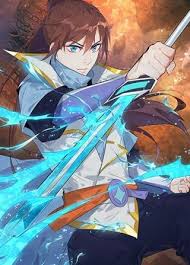The Story in 3 Sentences
A mortally wounded sword master, betrayed and facing annihilation, triggers a desperate sacrifice that catapults his consciousness back sixteen years to his youth, granting him a second chance to alter his doomed fate.
Armed with future knowledge and the sentient Nine Tribulations Sword, he meticulously rebuilds his power, forges unbreakable bonds of brotherhood, and outmaneuvers brilliant, calculating adversaries across the stratified realms of the Lower, Middle, and Upper Three Heavens.
His journey culminates not just in personal vengeance or supreme power, but in shattering the heavens’ oppressive order itself, forging a new destiny for himself and his sworn brothers against the very fabric of the celestial hierarchy.
Why It Stands Out
1. The Architect of Second Chances
This isn’t just a revenge tale; it’s a grand, tactical rebuild. The protagonist doesn’t merely overpower foes; he leverages his tragic future as a blueprint, turning intimate knowledge of betrayals and weaknesses into a strategic masterpiece. Every alliance, every resource gathered, is a calculated move on a cosmic chessboard, making his ascent feel earned and intellectually thrilling.
2. Brotherhood Forged in Celestial Fire
Beyond the cultivation levels and divine artifacts, the novel’s soul lies in its profound, unwavering depiction of brotherhood. These bonds aren’t convenient plot devices; they are the story’s bedrock, tested by impossible odds, betrayal, and cosmic stakes. The loyalty shared between the core group transcends mere camaraderie, evolving into a sacred, almost familial pact that defines their very purpose and gives emotional weight to every victory and loss.
3. Antagonists Who Command the Stage
The story refuses to offer cardboard-cutout villains. Figures like Mo Tian Ji and Diwu Qingrou are master strategists in their own right, possessing depth, motivation, and a chilling competence that makes them worthy adversaries. Their intellectual duels with the protagonist are as gripping as any physical battle, elevating the conflict from simple good-versus-evil to a complex war of wits, wills, and ideologies that spans multiple heavenly realms.
Characters That Leave a Mark
There’s Mo Tian Ji – the mastermind whose cold, calculating brilliance orchestrated the protagonist’s original downfall, driven by a complex web of familial duty and ambition that makes him a constant, chilling shadow across lifetimes.
You’ll meet Diwu Qingrou, who stands as the seemingly unassailable Prime Minister of Great Zhao, a tactical genius whose control over the Lower Three Heavens presents the first monumental, politically charged obstacle the reborn hero must dismantle with cunning, not just force.
And Gu Du Xing? They’re the one who embodies the icy, razor-sharp edge of loyalty, a sword master whose initially aloof demeanor melts into absolute, unwavering devotion to his sworn brother, proving that true strength often lies in silent, steadfast support.
The Flaws Fans Debate
The sheer, staggering length can feel overwhelming, with some middle sections accused of pacing lulls where the plot meanders or recycles familiar tropes before reigniting.
The harem element, while sometimes handled with more nuance than typical, still draws criticism for introducing romantic subplots that can feel tangential or detract from the core narrative of brotherhood and cosmic struggle for some readers.
Certain plot developments, especially in the later, higher-heaven arcs, can rely heavily on the protagonist’s foreknowledge or convenient power-ups, occasionally straining the meticulously built sense of earned progression and tactical realism that defines the early story.
Must-Experience Arcs
Ch. 1–500: The Lower Heavens Gambit – Chu Yang’s rebirth and initial rise, where he outsmarts local powers and Prime Minister Diwu Qingrou, laying the foundation for his brotherhood and proving his strategic genius in a grounded, politically charged setting.
Ch. 800–1500: Storming the Middle Realms – The brothers venture into the more dangerous Middle Three Heavens, facing stronger foes and complex clan politics, their bonds deepening as they confront new threats and uncover deeper layers of the Nine Tribulations prophecy.
Ch. 2000–2663+: Shattering the Celestial Order – The final ascent into the Upper Three Heavens and beyond, where the conflict escalates to a cosmic scale, challenging the fundamental laws of the universe and culminating in a battle that redefines the very concept of the heavens.
Killer Quotes
“With the blood of my heart, ten thousand tribulations will collapse!”
“What were brothers? If we stand together like this, we can stand together forever!”
“I hope to have the kind of martial brothers that would be willing to sacrifice without any regret! This is true brotherhood!”
Cultural Impact
It cemented its status as a foundational text in the xianxia genre, frequently mentioned alongside giants like “Battle Through the Heavens” for its influence on the “reborn strategist” trope.
The intense, almost sacred portrayal of brotherhood spawned countless fan discussions, memes, and artwork, with quotes about loyalty becoming iconic within the online cultivation novel community.
Despite its age and length, it maintains a dedicated, active fanbase on platforms like NovelUpdates and Fandom wikis, a testament to its enduring appeal and the powerful emotional core of its central relationships.
Final Verdict
Start Here If You Want:
A masterclass in the “reborn strategist” trope where the hero’s greatest weapon is his mind and future knowledge.
An epic, emotionally resonant saga built on the unshakeable, sacred foundation of brotherhood that survives against all cosmic odds.
A journey through a vast, multi-layered cultivation world where political intrigue and intellectual battles are just as important as raw power.
Study If You Love:
The intricate construction of a protagonist who wins through meticulous planning and exploiting foreknowledge, not just brute force.
The exploration of complex, morally grey antagonists who are genuine intellectual equals to the hero, making their conflicts deeply engaging.
The thematic depth of loyalty, sacrifice, and challenging predestined fate within the framework of Chinese xianxia mythology and philosophy.
Avoid If You Prefer:
Tightly paced narratives; the novel’s immense length and occasional slower sections can be daunting.
Stories that avoid harem or romantic subplots entirely, as these elements, while not the focus, are present.
Plots that strictly adhere to hard rules and avoid any sense of plot armor or convenient power escalation, especially in the climactic, higher-heaven arcs.
